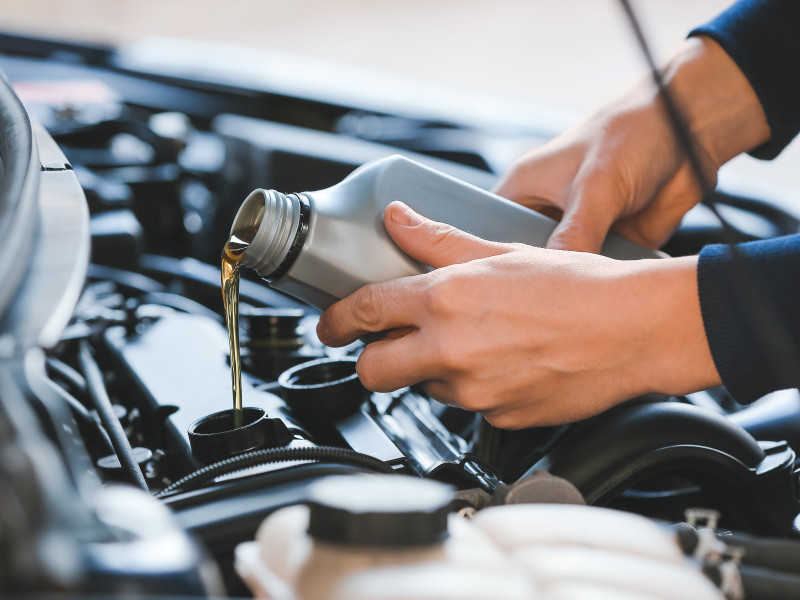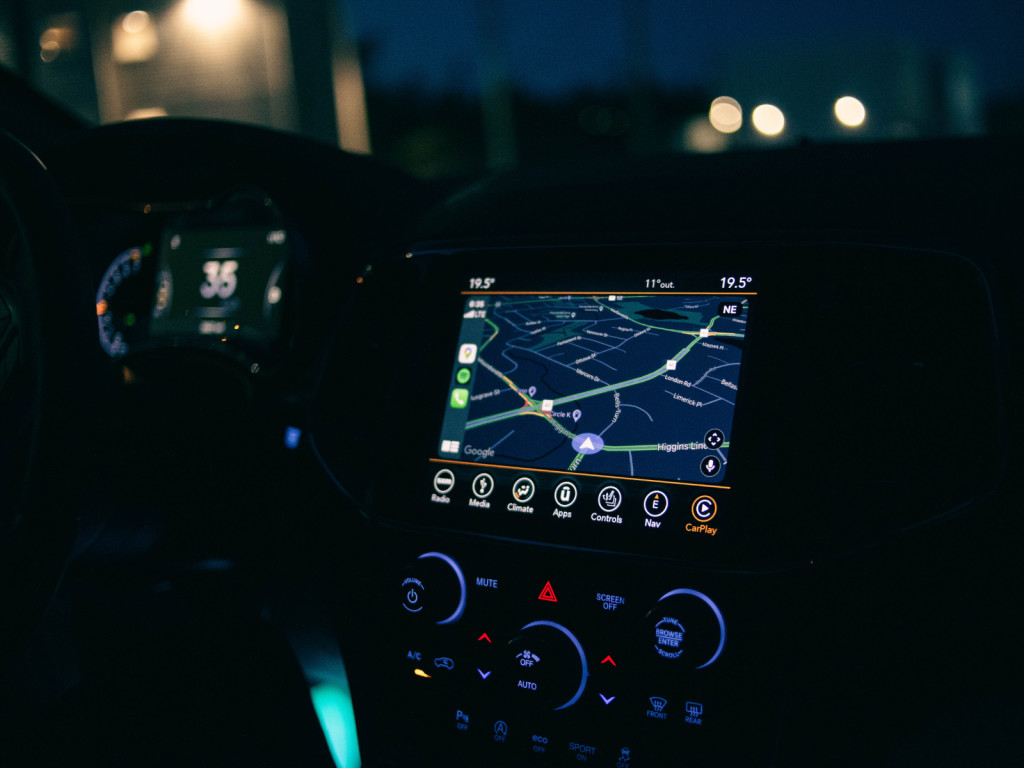Essential Tips on Extending the Lifespan of Your Vehicle

Whether it's for commuting to work, running errands, or embarking on road trips, our vehicles play a vital role in keeping us mobile and connected. However, with the rising costs of purchasing a new car, it has become increasingly important to extend the lifespan of our vehicles and make them last as long as possible.
Fortunately, there are expert tips and strategies that can help us achieve this goal. In this article, we will explore various expert tips on extending your vehicle's lifespan.
Regular Maintenance
Regular vehicle maintenance is essential not only for increasing its longevity but also for guaranteeing peak performance. By adhering to a forward-thinking maintenance schedule, you can identify and rectify impending issues before they escalate into significant problems, saving you precious time, money and avoiding undue stress.
1. Regular Oil Changes
Changing your vehicle's oil at recommended intervals is essential to keep the engine lubricated and prevent excessive wear and tear. Fresh oil helps remove dirt, debris, and contaminants that can accumulate over time, ensuring smooth engine operation and longevity.
2. Tire Rotation and Alignment
Rotating your tires regularly helps distribute wear evenly, extending their lifespan and improving fuel efficiency. Additionally, proper wheel alignment reduces strain on the suspension system and improves handling, ensuring a smoother and safer ride.
3. Fluid Checks and Replacements
Regularly checking and replacing vital fluids such as coolant, brake, transmission, and power steering is crucial for optimal performance and longevity. These fluids play vital roles in lubrication, cooling, and maintaining the overall health of various components.
4. Belt and Hose Inspections
Belts and hoses are indispensable in ensuring the seamless operation of your vehicle's systems. Habitual checks for any indications of deterioration, fractures, or leakages can avert unforeseen malfunctions and expensive restorations.
5. Filter Replacements
Air, cabin, and fuel filters play a significant role in maintaining the cleanliness and efficiency of your vehicle's systems. Regularly replacing these filters ensures proper airflow, protects engine components, and improves overall performance.
6. Battery Maintenance
Checking and cleaning battery terminals, ensuring proper connections, and monitoring battery health are essential for reliable vehicle operation. Regular battery maintenance prevents unexpected breakdowns and extends the life of your battery.
7. Brake System Inspections
Keeping your brakes in optimal condition is crucial for both safety and vehicle longevity. Regular inspections for brake pad wear, rotor damage, and fluid leaks can prevent brake failure and extend the lifespan of the braking system.
8. Spark Plug Replacement
Faulty or worn-out spark plugs can negatively impact engine performance, fuel efficiency, and overall vehicle reliability. Regular spark plug replacement ensures smooth combustion, optimal fuel consumption, and a longer-lasting engine.
Safe Driving Habits
Safe driving habits are essential for ensuring the safety of yourself, your passengers, and other road users. By practicing these habits, you can significantly reduce the risk of accidents, maintain vehicle control, and promote a smoother and more enjoyable driving experience. Here are some expert tips on safe driving habits:
1. Always keep your eyes on the road and your hands on the wheel.
Distractions rank high among the primary reasons for accidents. Activities like texting, phone conversations, eating, or personal grooming should be avoided while operating a vehicle. By concentrating exclusively on the act of driving, the probability of mishaps can be substantially reduced.
2. Follow traffic laws and regulations.
Obeying traffic signals, speed limits, and road signs is crucial for maintaining road order and safety. Adhering to these rules helps prevent collisions and ensures a smoother traffic flow.
3. Maintain a safe following distance.
Maintain a secure gap between your vehicle and the one ahead of you. This ensures enough response time should unexpected halts or emergencies arise. As a guideline, aim to uphold a minimum separation of three seconds from the vehicle in front.
4. Avoid aggressive driving.
Assertive driving habits, including tailgating, over-speeding, and constant lane switching, escalate the chances of mishaps. Adopting a patient approach and showing courtesy to fellow road users fosters a more secure environment for all drivers.
5. Use turn signals and communicate with other drivers.
Signaling your intentions with turn signals and using appropriate hand gestures when necessary helps other drivers anticipate your actions. Clear communication promotes smoother traffic flow and reduces the likelihood of misunderstandings or collisions.
6. Remain vigilant and conscious of your environment.
Continuously scan the road ahead, check your mirrors regularly, and be aware of other vehicles' position and behavior. Being alert allows you to respond quickly to changing road conditions, potential hazards, or unexpected actions by other drivers.
7. Avoid driving under the influence.
Never operate a vehicle while under the influence of alcohol, drugs, or any substance that hampers your decision-making and response time. It's essential to put the safety of yourself and others first by securing alternative transport if your ability to drive is compromised.
Proper Storage and Parking
Proper storage and parking practices are vital for preserving the condition and extending the lifespan of your vehicle. Whether leaving your vehicle unused for an extended period or simply parking it overnight, following these expert tips can help protect it from damage and maintain its longevity.
1. Sheltered Parking
Whenever possible, park your vehicle in a covered or enclosed area such as a garage or carport. Sheltered parking provides protection from the elements, including harsh weather conditions like rain, snow, hail, and excessive heat. It also helps prevent exposure to harmful UV rays that can fade paint and cause damage to the interior.
2. Protection from Extreme Temperatures
Extreme temperatures can negatively impact various components of your vehicle. If sheltered parking is unavailable, consider using a car cover to shield your vehicle from direct sunlight and extreme cold. Additionally, avoid parking under trees where falling branches or sap may damage the vehicle's exterior.
3. Avoid Long Periods of Inactivity
If you expect your vehicle to sit idle for long, take steps to maintain its condition. Fill the fuel tank to avoid moisture accumulation and potential fuel system problems. Using a fuel stabilizer to thwart fuel decay can be helpful. Also, consider disconnecting the battery or employing a trickle charger to avert battery depletion.
4. Tire Care
When storing your vehicle for an extended period, inflate the tires to the recommended pressure to prevent flat spots from developing. Consider using tire cradles or blocks to provide additional support. If possible, periodically rotate the tires to distribute weight evenly and minimize the risk of tire damage.
5. Pest Prevention
Implement protective measures to safeguard your vehicle from undesirable intruders like rodents or insects. Park in a neat, well-kept area, clean out any food or garbage from your vehicle and consider using deterrents such as mothballs or rodent repellant.
6. Regular Maintenance Before Storage
Before storing your vehicle, ensure it undergoes routine maintenance. Change the oil and filter, top up fluids, and perform any necessary repairs or inspections. This will help prevent potential issues during storage and ensure that your vehicle is in good condition when you're ready to use it again.
Unlock the Secrets to a Long-Lasting Ride
Keep in mind regular maintenance, safe driving habits, proper storage, and environmental considerations are key to preserving your prized possession. With a little care and attention, your vehicle will continue to be a reliable companion on the road for years. Buckle up and embark on a journey of longevity with your well-cared-for wheels. Happy driving!







